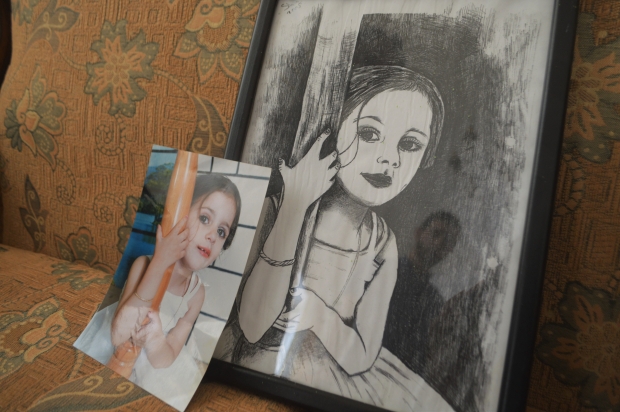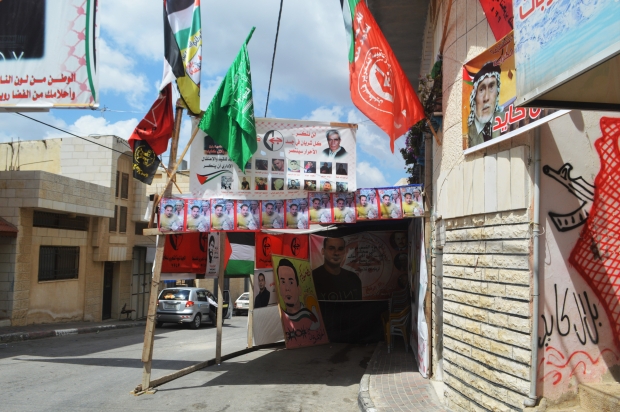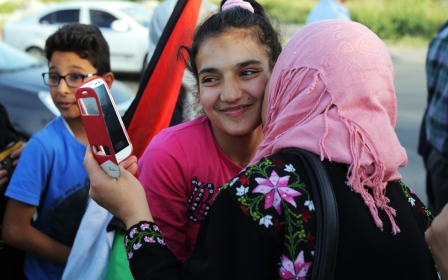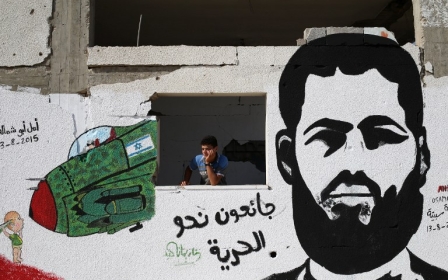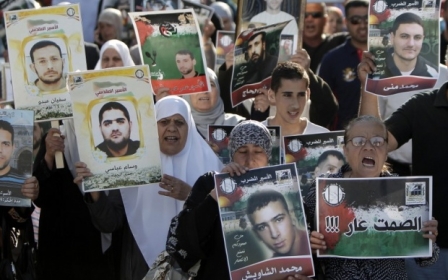Tensions flare as six hunger-striking Palestinian detainees' health deteriorates

NABLUS, West Bank - Six hospitalised Palestinian prisoners have entered dangerous stages of long-term hunger strikes in protest against their administrative detention - an Israeli policy that allows Palestinians to be imprisoned without charge or trial for an indefinite period of time.
All six prisoners have been hospitalised, with daily reports of serious health deterioration surfacing from various rights and legal groups. The most high-profile of them, Bilal Kayed, has been on hunger strike for 66 days. Kayed’s health has sharply deteriorated, with lawyers reporting that the 33-year-old is now unable to move or speak on his own.
Bilal’s mother, Raheeba Kayed, has been barred from visiting her son in the hospital; lawyers told her that Israeli authorities refuse to allow her son to be unhandcuffed from his hospital bed.
“He is very very weak now, and every time the lawyers ask for him to be unhandcuffed, the Israeli courts refuse,” she said. “I can’t imagine it, they have him tied to the bed by his wrists and ankles - it’s inhumane.”
Solidarity initiatives for the prisoners
Protests, sit-ins, night vigils and “days of rage” have been increasingly reported throughout the occupied West Bank and East Jerusalem, in solidarity with the six hunger strikers.
In addition to street protests, about 100 other Palestinian prisoners initially went on hunger strikes last month in solidarity with the six men. Of the 100, about 30 prisoners have continued their solidarity strikes into mid-August, including Ahmad Sadaat, the imprisoned leader of the Popular Front for the Liberation of Palestine (PFLP), with which Bilal is affiliated.
Solidarity initiatives for the six hunger strikers within Israeli prisons have caused Israel’s Prison Service to crack down by initiating night raids on cells, closing off certain prison sections from others, issuing monetary fines, transferring inmates to separate prisons, barring prisoners from receiving visits from their families or lawyers, and confiscating bedding, personal property and other “luxuries” normally allowed.
Bilal’s mother told Middle East Eye that the wave of solidarity she has seen for her son and the five others has given her hope that he will be released, and the strength to continue supporting her son’s risky commitment.
“We are all one in Palestine; all of these people supporting the hunger strikers are part of our family now, they are all my sons as well. I care for them like my own,” Raheeba Kayed said from her family home on Wednesday.
Bilal was scheduled to be released on 13 June, after serving a 14-and-a-half year sentence for his affiliation with the left-wing PFLP political party, considered a terrorist group by Israel.
“My family - around 20 cars worth of people - went to the checkpoint on the day Bilal was supposed to be released to receive him. We waited and waited, but he didn’t come,” Raheeba said. “Eventually Bilal’s lawyer called and told us he wouldn’t be released that day, and the next day we found out he was put under administrative detention.”
Bilal’s sister, Suha Kayed, who works for the International Red Cross in Germany, had flown in from Europe in order to be in the West Bank for her brother’s release.
“We never thought anything like this could happen," she said. "I flew in to see my brother and had my children come a few weeks after me so they could meet him. When we heard that he wouldn’t be released we tried to stay here waiting for the Israelis to come around and release him, but now school is starting so my children and I have to return to Germany”.
Two days after Israeli authorities refused his release, Bilal announced he was beginning the hunger strike, and the Kayed family went from expecting a joyous reunion to the realisation that Bilal would either die in prison, or be released in seriously bad health.
“I can’t imagine that the Israeli government is actually refusing to release my brother. He served his time; 14-and-a-half-years have been thrown away in prison, that’s enough. They must release him now before this escalates any further,” his sister told MEE, just before she headed to the airport. “I don’t want to have a big goodbye with my family here now, because I hope I will be returning soon for my brother’s release.”
'Secret files' and indefinite detention
Amnesty International released a statement last week calling for the charging or release of Bilal.
“The Israeli authorities’ use of administrative detention to continue to hold a person who has completed a long custodial sentence appears particularly cruel. The Israeli authorities must release Kayed, or, if they have evidence that he has committed a crime, then he should be promptly charged with a recognizable criminal offence and tried in proceedings that comply with international law and standards for a fair trial.”
Since the announcement that Bilal would not be released, Israeli authorities have refused to provide a reason for his prolonged imprisonment. Under the policy of administrative detention, any potential evidence against an administrative detainee is held in so-called “secret files” for "security" reasons.
According to Palestinian prisoners’ rights group Addameer, during Bilal’s 14 years of detention he “had little contact with the outside world.” The group maintains that any “‘secret file' on the grounds of which he is being detained is unlikely to contain information about any legitimate security concerns.”
Sanaa Baboul, the mother of Mahmoud and Mohammed Balboul, two brothers among the six hunger strikers, told MEE she still has no idea why her sons are being held.
Mahmoud and Mohammed were arrested on 9 June, a few weeks after their younger sister, Nuran Balboul, was detained for allegedly being in possession of a knife in her bag at an Israeli checkpoint.
Mahmoud has been on hunger strike for 48 days, while Mohammed has been on strike for 45 days.
After serving a four-month sentence, the brother’s 14-year-old sister was released, but Israeli authorities have continued to hold Mahmoud and Mohammed.
“The Israeli soldiers came to our house in the middle of the night a few weeks after they took my daughter," she said. "They came then to take my sons, that’s all I know. I don’t have any more information. We haven’t heard of any charges or anything about why they were arrested.”
Sanaa said lawyers have told her both of her sons’ health have deteriorated, but like Bilal’s mother, she has been barred from obtaining an Israeli permit to visit them at the hospital.
In addition to the Balboul brothers and Bilal Kayed, Palestinian prisoners Malek al-Qadi and Ayyad al-Hremi have been on hunger strike for 35 days to protest their administrative detention, while Omar Nazzal, a well-known Palestinian journalist, has been on hunger strike for more than two weeks.
Nazzal, 53, was detained by Israeli forces in April while crossing into Jordan en route to a meeting with the European Federation of Journalists and put under administrative detention.
In its report, Amnesty called hunger strikes a “legitimate form of protest” that are sometimes Palestinian prisoners’ “only means of demanding their rights under international law.”
“The use of secret evidence denies detainees the ability to effectively challenge their detention in court and the right to a fair hearing,” the report said. “As detainees cannot mount a proper defence against the accusations they face, and are uncertain as to when they will be released, Amnesty International considers that Israel’s use of administrative detention itself may amount to cruel, inhuman or degrading treatment.”
New MEE newsletter: Jerusalem Dispatch
Sign up to get the latest insights and analysis on Israel-Palestine, alongside Turkey Unpacked and other MEE newsletters
Middle East Eye delivers independent and unrivalled coverage and analysis of the Middle East, North Africa and beyond. To learn more about republishing this content and the associated fees, please fill out this form. More about MEE can be found here.


